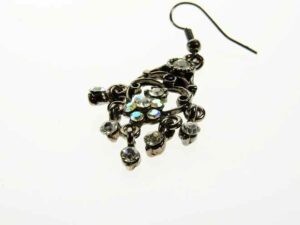
Navigating Probate for Out-of-State Properties can be Complex
Navigating probate for out-of-state properties can be complex. Property outside the deceased’s home state requires additional steps, often involving separate probate processes, known as ancillary probate. This process can be complex and time-consuming for beneficiaries, so knowing how to avoid and manage it is essential.
Understanding Ancillary Probate
Ancillary probate is a secondary process required when a decedent owns real estate in a different state from where they resided. Each state has its own probate rules, and ancillary probate ensures that local laws govern property transfer within that state. This process involves additional court proceedings, paperwork and, often, hiring an attorney licensed in that state.
The necessity of ancillary probate can complicate estate settlement, leading to delays and added legal fees. However, understanding how this process works and planning accordingly can help streamline property transfer and reduce administrative burden for beneficiaries.
Drawbacks of Out-of-State Probate
Out-of-state probate can be particularly burdensome for estate executors and beneficiaries. Key challenges include:
- Time and Expense: Ancillary probate can take months or even years to resolve, especially if multiple properties are involved. This can delay property transfers and increase expenses, from court costs to attorney fees in each state.
- State-Specific Rules: Each state has probate requirements, and navigating unfamiliar regulations can be difficult. These complexities often necessitate hiring local legal assistance, further increasing costs.
- Potential for Disputes: With multiple jurisdictions involved, disputes are more likely to arise, complicating property transfers and causing additional delays.
Recognizing these challenges early can help estate planners and executors find ways to avoid or mitigate the effects of ancillary probate.
Solutions to Avoid Ancillary Probate
Once you realize that you’re at risk of ancillary probate, the next step is implementing strategies to avoid it. Thankfully, there are several ways that you can keep your property out of ancillary probate.
Transfer Property Ownership with a Revocable Living Trust
One of the most effective ways to avoid ancillary probate is to transfer real estate ownership into a revocable living trust. By placing property into a trust, the owner maintains control over the asset during their lifetime. Upon their passing, the trust facilitates the property’s transfer directly to beneficiaries, bypassing the need for probate altogether. Trusts are also adaptable, allowing the owner to make changes as needed during their lifetime.
Establish Joint Tenancy with Right of Survivorship
Another strategy for avoiding ancillary probate is establishing joint tenancy with the right of survivorship (JTWROS) on out-of-state properties. In a JTWROS arrangement, property ownership automatically passes to the surviving joint owner, eliminating the need for probate. This method benefits spouses or relatives wishing to simplify property transfer upon death. However, it’s important to remember that JTWROS does not allow flexibility in asset distribution, since ownership automatically transfers to the surviving owner.
Use a Transfer on Death (TOD) Deed
A Transfer on Death (TOD) deed is another probate-avoidance tool available in some states. This type of deed allows property owners to name a beneficiary who will inherit the property upon death. The TOD deed doesn’t impact ownership during the owner’s lifetime and can be changed or revoked as desired. Upon the owner’s passing, the TOD deed transfers the property directly to the named beneficiary, bypassing probate. However, it’s crucial to check if this option is available, as not all states permit TOD deeds.
Consider Selling the Property Before Death
Sometimes, selling out-of-state property before death can eliminate the need for ancillary probate. By liquidating the asset, the estate avoids probate proceedings in that state, simplifying asset distribution for beneficiaries. While this may not be the best solution for all situations, it’s a viable option for those who want to reduce the probate burden on their loved ones. It’s worth consulting an estate planning professional to weigh the financial implications of selling versus retaining the property.
Navigating probate for out-of-state properties can be complex, especially for executors unfamiliar with ancillary probate processes. If you would like to learn more about probate, please visit our previous posts.
Reference: Nolo (June 4, 2024) “Ancillary Probate: How to Avoid Probate in Another State”
Image by Simon Hill














